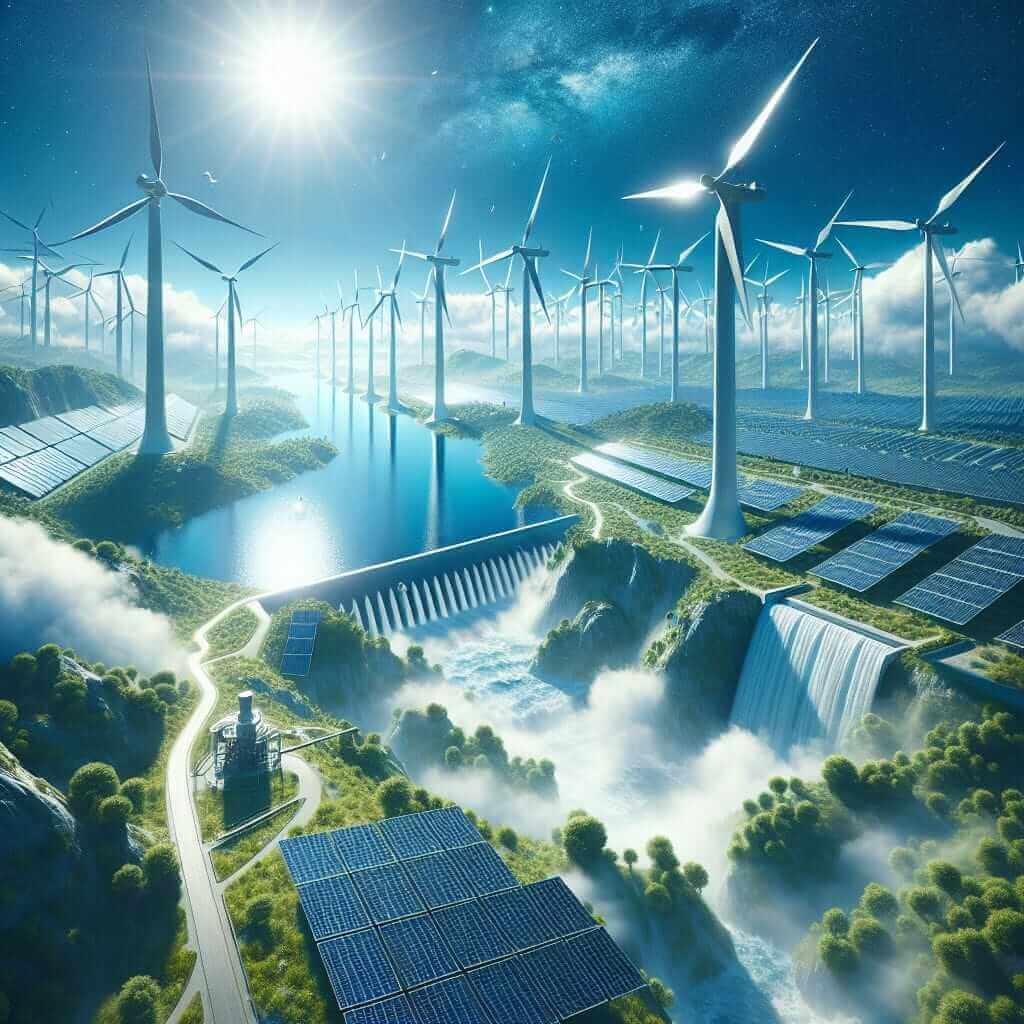The Reading section of the IELTS exam can be one of the most challenging components. It requires not only a thorough understanding of the passage but also the ability to quickly locate and comprehend the necessary information. The topic of renewable energy is a frequent one in the IELTS Reading section due to its ongoing relevance and the global push towards sustainability.
Nội dung bài viết
- Practice Reading Passage: Challenges of Transitioning from Fossil Fuels to Renewable Energy
- Reading Passage
- Practice Questions
- Multiple Choice
- True/False/Not Given
- Matching Headings
- Answer Keys and Explanations
- Multiple Choice
- True/False/Not Given
- Matching Headings
- Common Mistakes
- Vocabulary
- Grammar Point
- Advice for High Reading Scores
In this article, we will explore a highly relevant topic: “What are the challenges of transitioning from fossil fuels to renewable energy?” This topic has been prevalent in a variety of IELTS exams in recent years, making it a crucial subject for practice. With climate change and environmental sustainability being prominent issues, it’s highly probable that similar topics will appear in future exams.
Practice Reading Passage: Challenges of Transitioning from Fossil Fuels to Renewable Energy
Reading Passage
The transition from fossil fuels to renewable energy sources is a critical step towards achieving global energy sustainability. Despite the clear benefits, the transition poses several challenges.
One of the primary challenges is the financial cost. Establishing renewable energy infrastructures, such as wind farms, solar panels, and hydroelectric plants, requires substantial upfront investments. Additionally, maintaining these infrastructures can also be expensive. In contrast, fossil fuel infrastructures are already well-established and often subsidized by governments.
Another significant challenge is technological development. Renewable energy technologies are improving, but they still face efficiency and storage issues. For instance, solar and wind energy are intermittent, meaning they do not produce energy consistently. Innovations in energy storage and grid management are essential to overcome this problem.

Moreover, there is the issue of political and economic interests. The fossil fuel industry is deeply entrenched in the global economy. Transitioning away from fossil fuels can lead to economic instability, especially in regions that heavily depend on the oil and gas industry. Governments and corporations with vested interests in fossil fuels often resist the transition towards renewable energy.
Social acceptance is another hurdle. Communities accustomed to fossil fuel usage may be resistant to change. Public awareness and education campaigns are necessary to inform people about the benefits of renewable energy and encourage its adoption.
In summary, transitioning from fossil fuels to renewable energy involves overcoming financial, technological, political, and social challenges. While the path is fraught with difficulties, the transition is necessary to ensure a sustainable future.
Practice Questions
Multiple Choice
-
What is one of the primary financial challenges of shifting to renewable energy?
A. Lack of government support
B. Low cost of renewable energy technologies
C. High upfront investments in infrastructures
D. Insufficient public awareness -
Which of the following is NOT mentioned as a technological challenge in the passage?
A. Efficiency issues
B. Energy storage problems
C. Consistent energy production
D. High operational costs
True/False/Not Given
-
The passage states that fossil fuel infrastructures receive substantial government subsidies.
- True
- False
- Not Given
-
Innovations in energy storage and grid management have completely resolved efficiency issues.
- True
- False
- Not Given
Matching Headings
-
Match the following headings with the correct paragraphs from the passage:
i. Financial Challenges
ii. Technological Development
iii. Political and Economic Interests
iv. Social AcceptanceA. Paragraph 1
B. Paragraph 2
C. Paragraph 3
D. Paragraph 4
Answer Keys and Explanations
Multiple Choice
-
C. High upfront investments in infrastructures
- Explanation: The passage highlights that “establishing renewable energy infrastructures requires substantial upfront investments.”
-
D. High operational costs
- Explanation: The passage discusses efficiency and storage issues but does not mention high operational costs as a technological challenge.
True/False/Not Given
-
True
- Explanation: The passage mentions that “fossil fuel infrastructures are often subsidized by governments.”
-
False
- Explanation: The passage indicates that innovations are “essential to overcome” efficiency issues, implying they have not yet fully resolved the problem.
Matching Headings
-
- i. Financial Challenges – B.
- ii. Technological Development – C.
- iii. Political and Economic Interests – D.
- iv. Social Acceptance – E.
Common Mistakes
- Misinterpreting Questions: Ensure you understand what each question is truly asking before choosing an answer.
- Time Management: Don’t spend too much time on one question. Move on and come back if needed.
- Neglecting Keywords: Pay careful attention to keywords in both questions and the passage.
Vocabulary
- Infrastructure (n.) [ˈɪnfrəstrʌktʃər]: the basic systems and services that are necessary for a country or an organization to run smoothly (e.g., buildings, transport, water and power supplies).
- Intermittent (adj.) [ˌɪntəˈmɪtənt]: occurring at irregular intervals; not continuous or steady.
Grammar Point
Passive Voice: Often used in academic writing to emphasize the action rather than the subject.
- Structure: [Subject] + [form of ‘to be’] + [past participle] + [by-agent (optional)]
- Example: “Renewable energy technologies are improving.”
Advice for High Reading Scores
- Practice Regularly: Regular reading practice builds speed and comprehension.
- Time Yourself: Simulate exam conditions to build time management skills.
- Understand Question Types: Familiarize yourself with the different kinds of questions to expect.
- Enhance Vocabulary: A broad vocabulary makes understanding passages simpler.
- Review Mistakes: Learn from errors to avoid repeating them in the future.